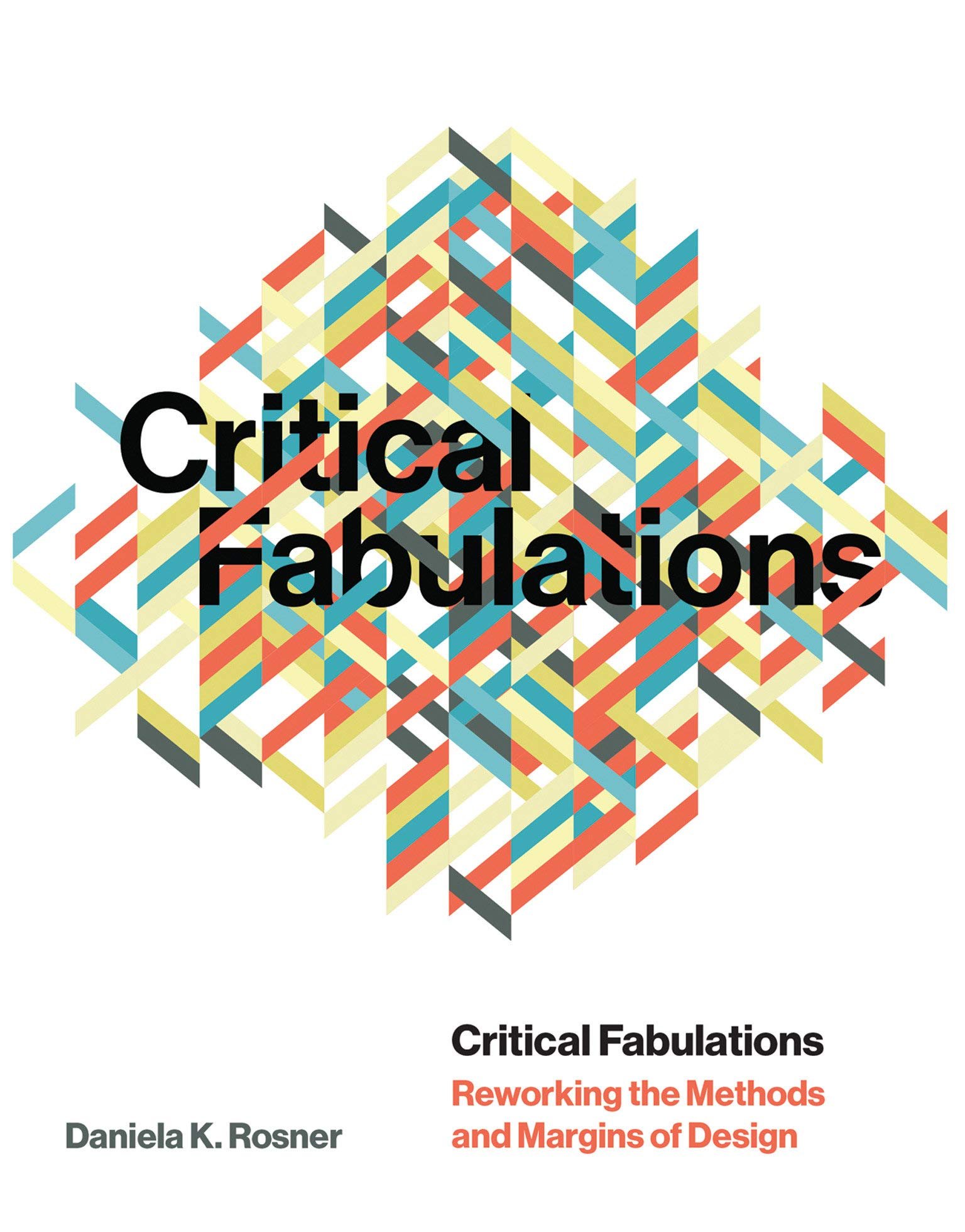Critical Fabulations: Reworking the Methods and Margins of Design
In Critical Fabulations, Daniela Rosner proposes redefining design as investigative and activist, personal and culturally situated, responsive and responsible. Challenging the field's dominant paradigms and reinterpreting its history, Rosner wants to change the way we historicize the practice, reworking it from the inside. Focusing on the development of computational systems, she takes on powerful narratives of innovation and technology shaped by the professional expertise that has become integral to the field's mounting status within the new industrial economy.
To do so, she intervenes in legacies of design, expanding what is considered “design” to include long-silenced narratives of practice, and enhancing existing design methodologies based on these rediscovered inheritances. Drawing on discourses of feminist technoscience, she examines craftwork's contributions to computing innovation—how craftwork becomes hardware manufacturing, and how hardware manufacturing becomes craftwork. She reclaims, for example, NASA's “Little Old Ladies,” the women who built information storage for the Apollo missions by weaving wires through magnetized metal rings.Mixing history, theory, personal experience, and case studies, Rosner reweaves fibers of technoscience by slowly reworking the methods and margins of design.
She suggests critical fabulations as ways of telling stories that awaken alternative histories, and offers a set of techniques and orientations for fabulating its future. Critical Fabulations shows how design's hidden inheritances open different possibilities for practice.
Daniela Rosner
Assistant Professor in Human Centered Design and Engineering (HCDE) at the University of Washington, where she codirects HCDE's Tactile and Tactical Design Lab.
Her research critically investigates the role design practices play in materializing collective futures, focusing on practices historically marginalized within engineering cultures such as electronics maintenance and needlecraft.
Rosner also serves on the Editorial Board of Artifact: Journal of Design Practice and as the editor of the "Design as Inquiry" forum for Interactions Magazine, a bimonthly publication of ACM SIGCHI."
Credits
Designer: Daniela Rosner
Publisher: The MIT Press
Country: United States
Photographs: ©Daniela Rosner / ©The MIT Press



